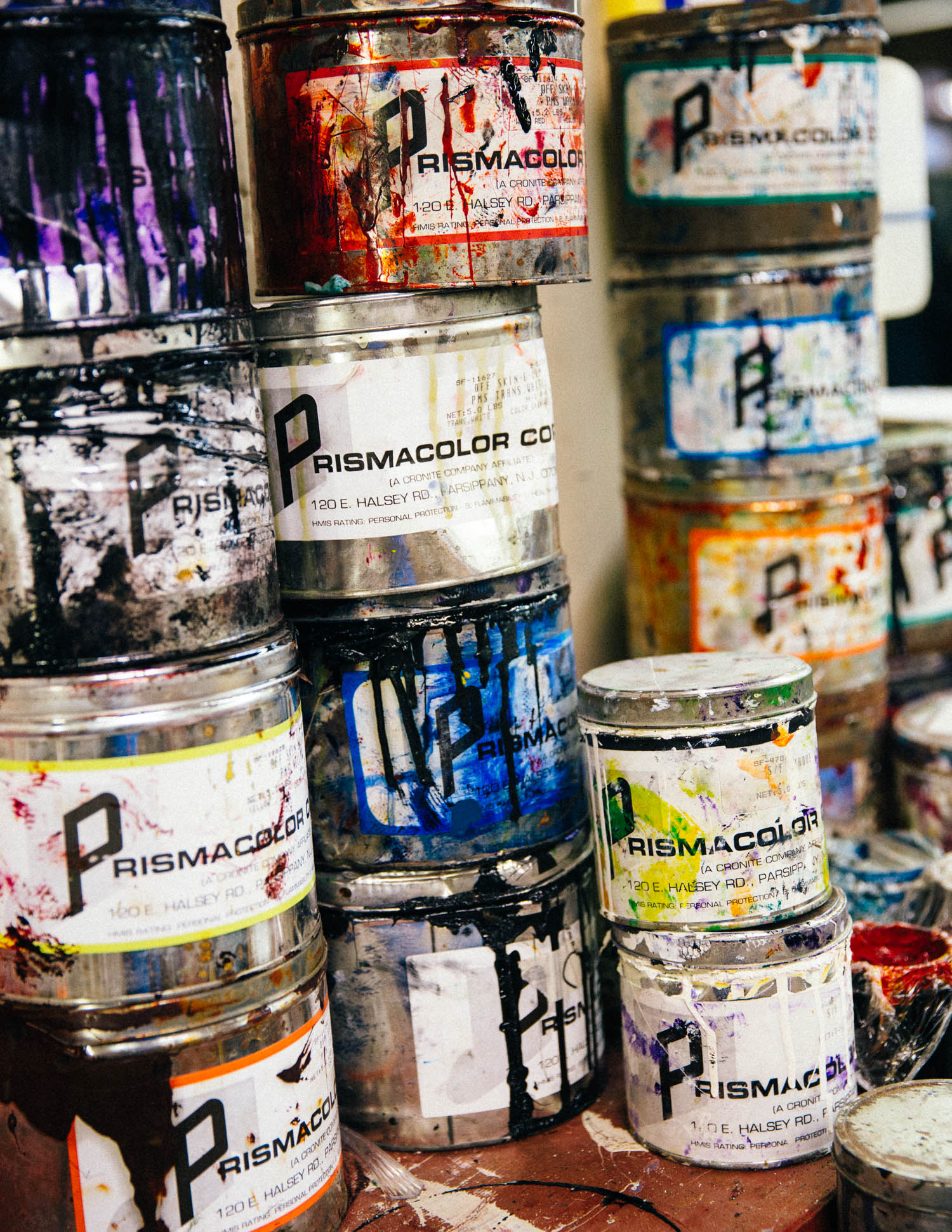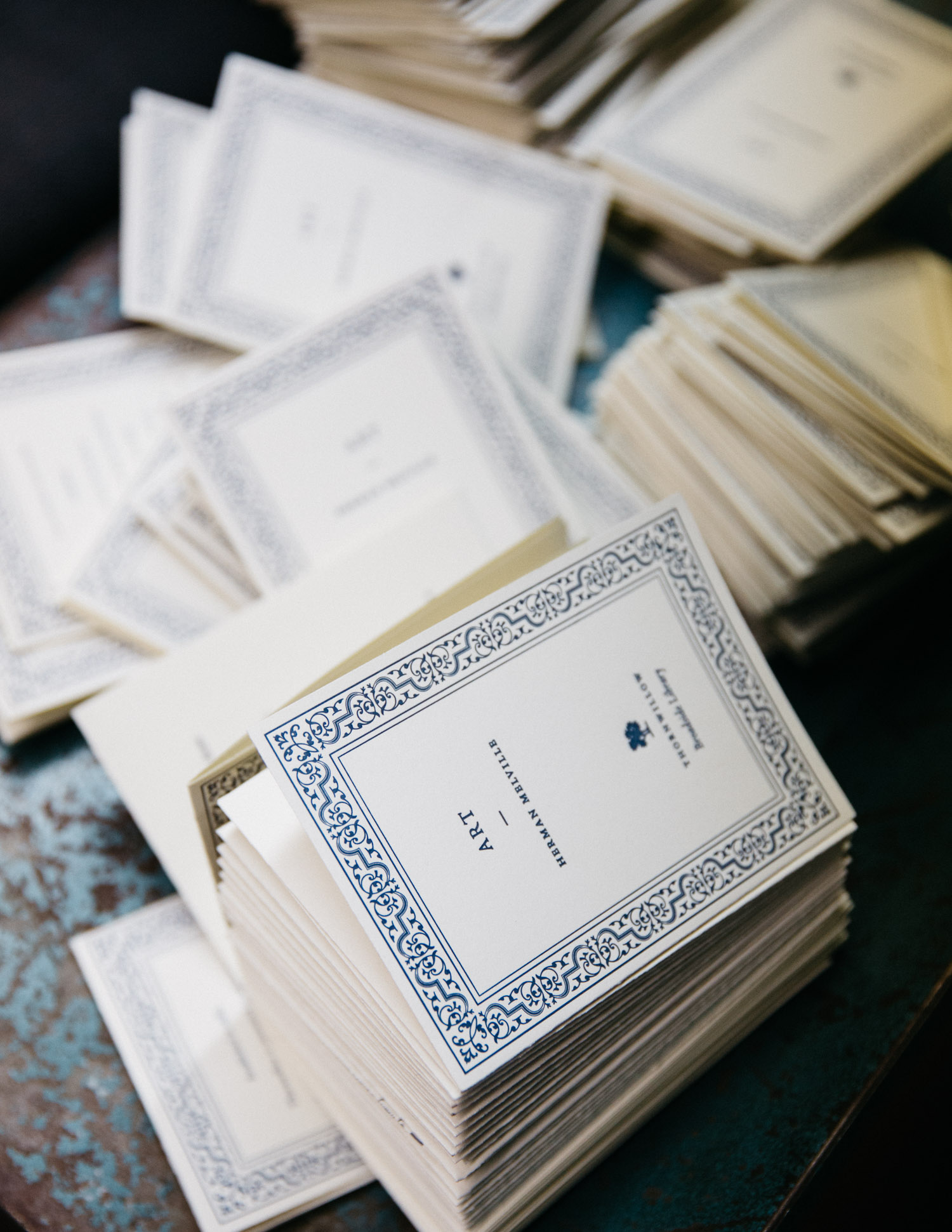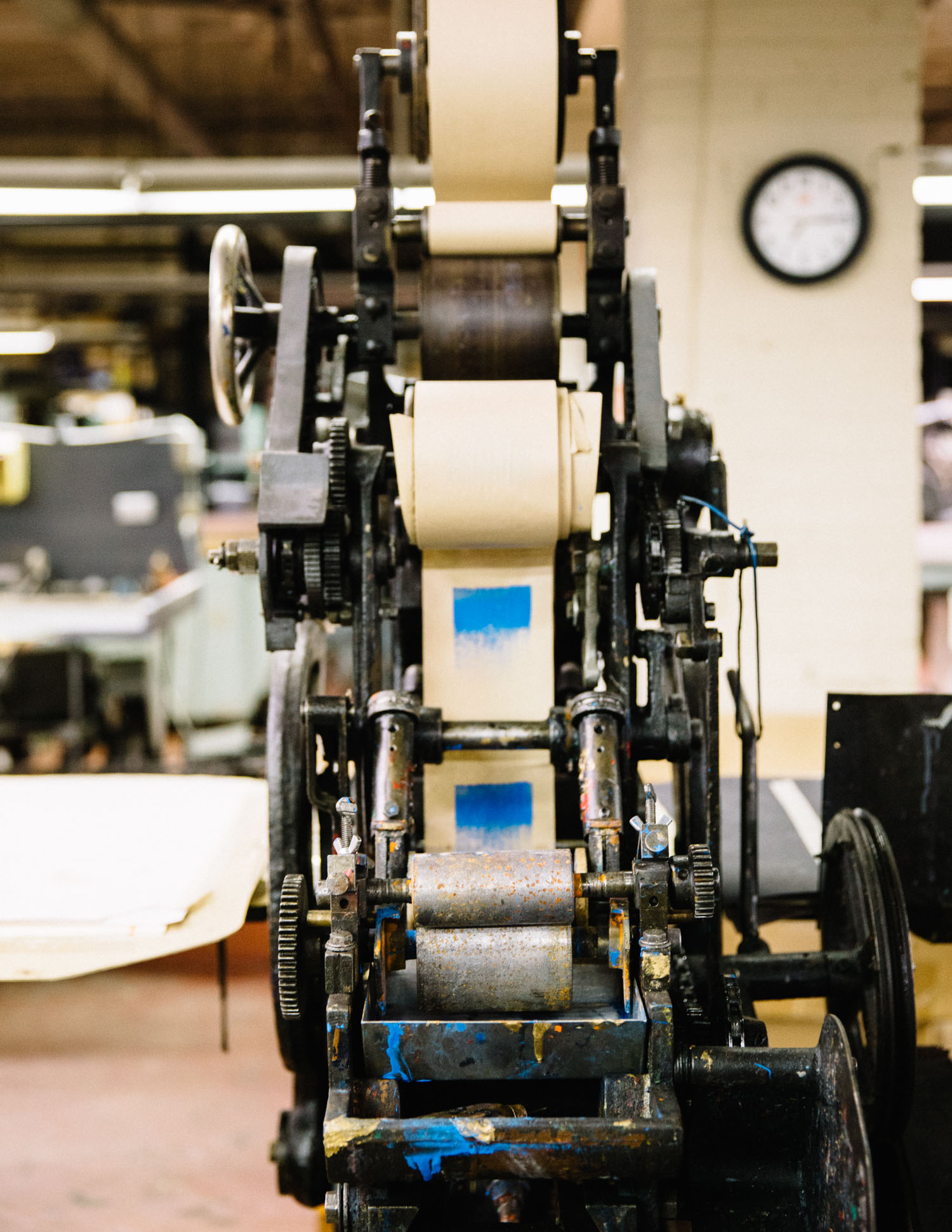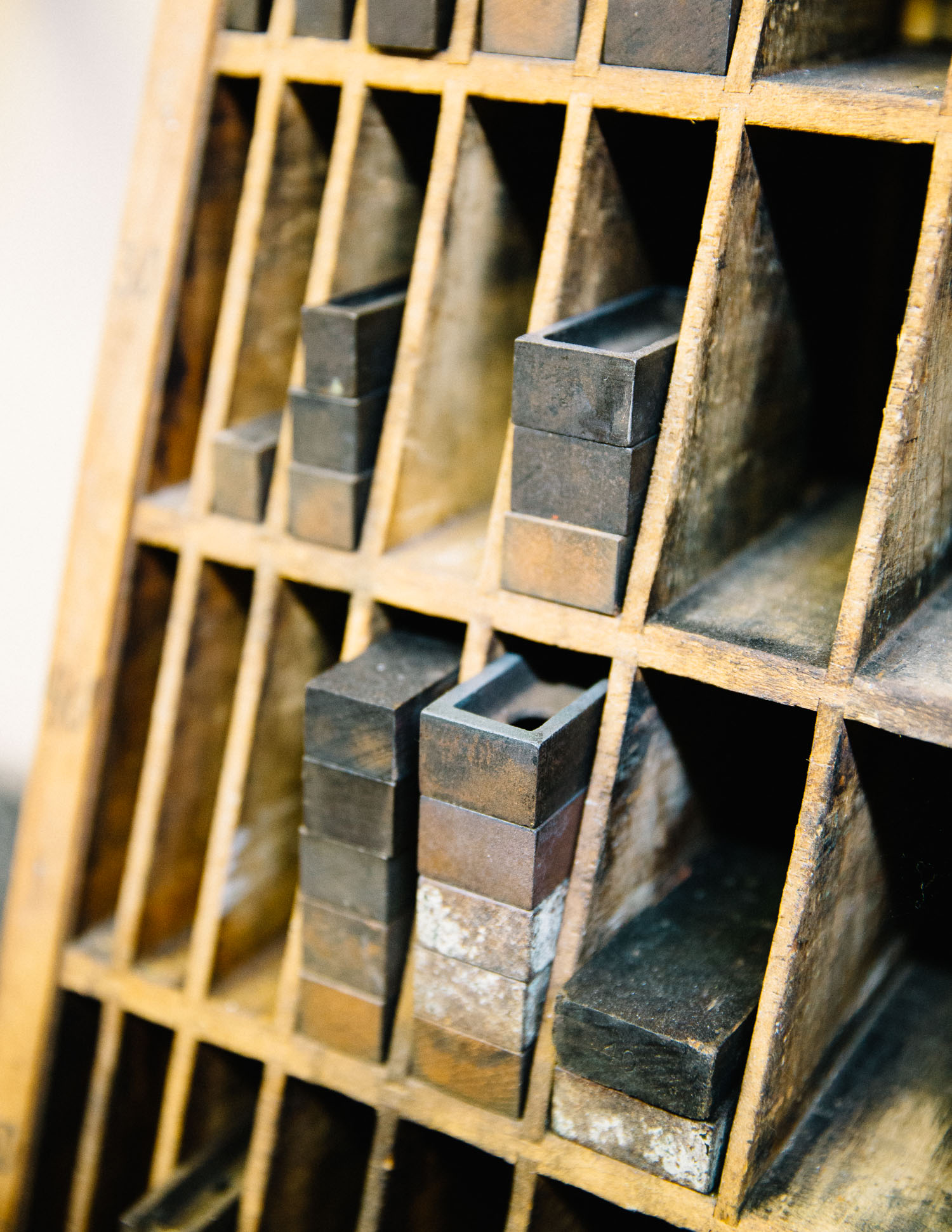Thornwillow Press
In the age of the Internet, where the intangible ephemera of emails, evites, iMessages, ebooks, and apps litter our landfill in the cloud, there is a magic that remains in the palpability of paper. Especially paper with words on it. These things serve to memorialize a moment, a meeting, a milestone…a simple act of kindness.
Luke Ives Ponitfell believes in that magic. He cultivates this craft in a day and age where it is certainly fading into a lost art. On machines born in an industrial age all but forgotten, these marvels of steel and ink produce a canvas for the human touch, a record of human thought meant to be experienced between the prints of one’s fingers. The medium captured Pontifell’s imagination at an early age. In 1985, he acquired his first machine at the age of 16. After a course in letterpress printing at The Center for Book Arts in New York, he undertook a summer project each year, printing books spanning William Shirer’s dropping of the atom bomb, historian Arthur Schlesinger’s bio of Kennedy's assassination, and Walter Cronkite's broadcast of the moon landing among others.
What began as merely a hobby grew into an obsession by his senior year at Harvard College. He had found his thing. For Pontifell, this was about craft, typography, and art. This was about living and working with things that were here long before he was and will be here long after he's gone—a notion subconsciously cultivated during his parents’ loving restoration of an 18th century western Massachusetts farm house called Thornwillow.
Thornwillow Press sits in the sleepy town of Newburgh in upstate New York. Perched on the banks of the Hudson River, it’s quiet up here, the only sound the rhythmic hum of Heidelberg Cylinder letterpresses kissing ink to paper. It’s the kind of sleepy colonial town that conjures up images of George Washington felling a cherry tree. My ride informs me that the founding father did indeed set up headquarters here during the Revolution. The modest stone house sits within earshot from the Thornwillow factory, forever preserved as a historic site, a behavior Newburgh has no intention of growing out of anytime soon.
Thornwillow’s philosophy is anchored in making objects that last…that embody identities and ideas that matter. A fellow in the bindery rose through the ranks each year at his craft from folding to sewing to cloth binding to leather binding to gilding and is now making books that sit in the permanent collection of the White House in The Morgan Library. They will outlive their maker. It's the belief that the craftsmanship through which an object enters the world is the soul within the object. It’s this philosophy that fuels my 60 mile jaunt upstate. My pursuit of paper made from conviction, old-fashioned means, and American grit leads me to Mr. Pontifell’s opus in Newburgh, NY.
“Ultimately, what we do is a simple thing. It’s black ink on white paper. From that simple combination, one can open up visions of the universe.”
Pontifell is not only a master of the printing craft but an avid collector of the machines which make it possible. He holds onto things he values. The handful of holes in his sweater are a tell. His oldest press is a Civil War era etching press from the 1860s. With a childlike cackle, he jokingly admits it’s a sickness. Thirty two operational presses dot the factory floor (many of them turn of the century) while another 30 sit hamstrung in a neighboring building conjoined by an underground tunnel. “Each of these machines has its own unique story to tell, much like the books that we publish.”
That first press is still with him in the factory today, churning out the books, stationery, thank you notes, identity cards, and broadsides that make this world a little more beautiful each time they change hands. Not only do they not “make ‘em like they used to,” no one makes these presses at all anymore. They are a marvel of a bygone era, and Pontifell, their custodian. They’re his 18th century farm house…they’re his Thornwillow.














